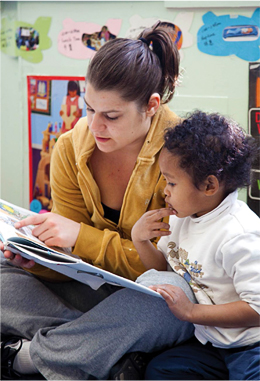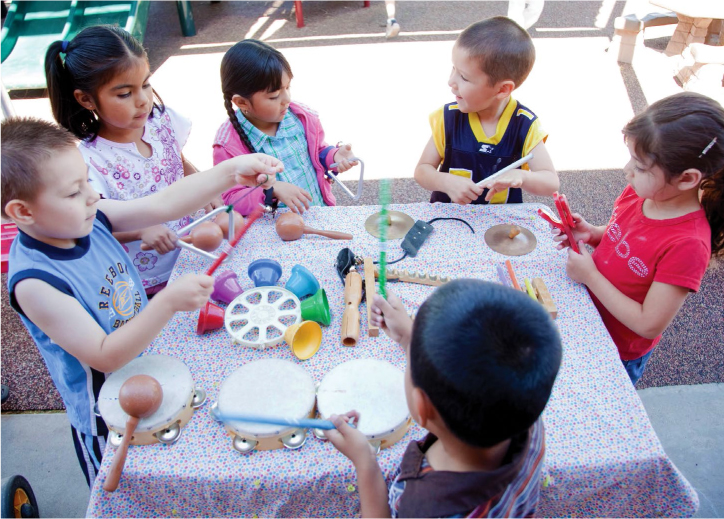Social and Emotional Development
Positive social and emotional development in the early years provides a critical foundation for lifelong development and learning.

Social development refers to a child's ability to create and sustain meaningful relationships with adults and other children. Infants and toddlers develop relationship-building skills and behaviors through their earliest interactions with important adults in their lives. Children who develop trusting relationships with adults are able to more fully explore and engage in the world around them. They know that the adults will support them in challenging times.
Relationships with other children also may develop in the first three years of life. These relationships provide opportunities to practice skills learned from adults. These relationships also foster problem-solving skills as young children navigate the difficulties and joys of interacting with another child who has different wants and ideas. As children move into the preschool years, they become increasingly interested in forming relationships with peers. Critical social skills, such as compromise, cooperation, and sharing, are developing at this time. Young children need support from adults as they learn and practice these skills.
Emotional development refers to a child's ability to express, recognize, and manage their own emotions as well as respond appropriately to others' emotions. Emotional development in infants is closely tied to their social development with adults as well as to individual differences. These early relationships teach young children how to express and interpret a wide range of emotions. Though children express emotions at birth, the preschool years are a critical time for learning how to manage emotions in ways that can help children build strong social skills and get the most out of their time in the early childhood program. Preschoolers are developing more concrete ideas about their own identity–who they are and what they can do. A sense of identity and belonging contributes to school readiness and learning by helping children gain self-confidence. When children feel good about themselves and what they can do, they engage more fully in learning opportunities.

For many reasons, the rate and path of social and emotional development varies in young children. Cultural and linguistic backgrounds must be taken into account as well as individual differences. Some cultures encourage children to be outgoing, others to be reserved in social interactions and emotional expression. Children with disabilities may require more individualized instruction or accommodations. They may need intentional guidance from teachers to help them form friendships or to express their feelings.
As children observe and interact with familiar adults, they begin to learn how to express and interpret a broad range of emotions. Social and emotional development go hand-in-hand in the early years.
Last Updated: May 21, 2024
